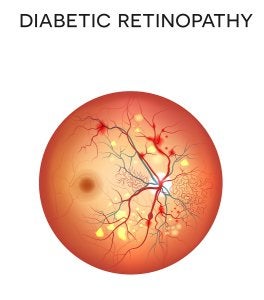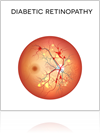 If you suffer from diabetes, you’re at an increased risk of developing a number of serious health complications, including eye problems like diabetic eye disease. For this reason, it’s crucial that you visit your ophthalmologist in Chicago regularly for eye exams and comprehensive eye care. Here are some important facts about diabetic eye disease that you should discuss with your eye doctor.
If you suffer from diabetes, you’re at an increased risk of developing a number of serious health complications, including eye problems like diabetic eye disease. For this reason, it’s crucial that you visit your ophthalmologist in Chicago regularly for eye exams and comprehensive eye care. Here are some important facts about diabetic eye disease that you should discuss with your eye doctor.
What is Diabetic Eye Disease?
Diabetic eye disease is a group of eye conditions that eye doctors commonly diagnose in people who have diabetes. These eye conditions include diabetic retinopathy, diabetic macular edema, cataracts, and glaucoma. These conditions are either caused by diabetes or diabetes complications. When someone with diabetes has chronically high blood sugar, the blood vessels in the retina may become damaged, resulting in diabetic retinopathy. If untreated by an ophthalmologist, this condition may progress to diabetic macular edema, which causes a build up of fluid in the retina that eventually results in blindness.
Symptoms of Diabetic Eye Disease
In its early stages, diabetic retinopathy does not cause any significant symptoms. The longer that the condition progresses without intervention by an eye doctor, however, the more severe the symptoms will become. The retinal blood vessels can begin to bleed and cause an increase in floaters in the eye. If the condition progresses and diabetic macular edema develops, you will experience blurred vision, other changes in vision that resist attempts at vision correction, and eventually, complete vision loss.
How Your Eye Doctor Can Treat Diabetic Eye Disease
Once diabetic retinopathy progresses to diabetic macular edema, your eye doctor has a few different eye care treatment options. Depending upon your symptoms, your ophthalmologist may recommend laser eye surgery, or medication. Laser eye surgery corrects damaged and leaking blood vessels in the retina using laser heat. Your eye doctor may also try to correct macular edema via corticosteroid injections, or anti-vascular endothelial growth factor. These injections can be used in addition to, or instead of, laser eye surgery.

